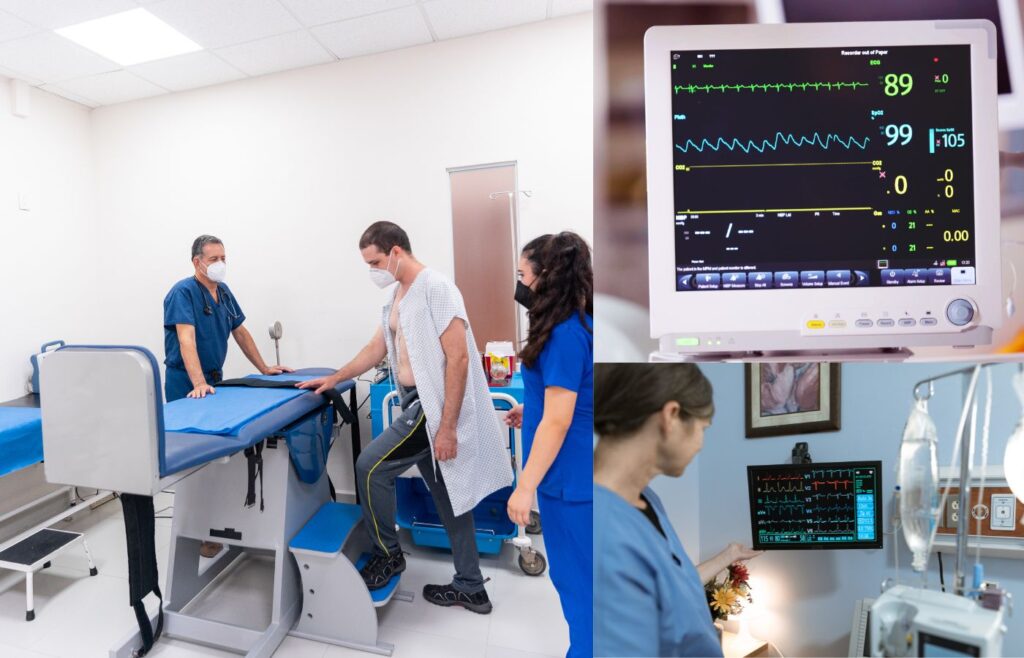In today’s competitive healthcare industry, hands-on experience is as important as classroom learning. For students pursuing a career in cardiovascular diagnostics, an ECG technician internship is one of the most crucial aspects of their education. It bridges the gap between theoretical knowledge and real-world application, preparing students for a professional work environment.
This blog explores the significance of internships in the ECG technician career path and explains how they enhance employment opportunities, skill development, and overall confidence.
🎓 What is an ECG Technician?
An ECG (Electrocardiogram) technician is a skilled healthcare worker trained to operate ECG machines that monitor and record the electrical activity of a patient’s heart. These reports help physicians diagnose heart conditions like arrhythmias, heart attacks, and more.
📘 ECG Technician Course Overview
The journey to becoming an ECG technician begins with enrolling in an ECG technician course. These are typically short-term diploma or certificate programs that provide foundational knowledge in:
- Human anatomy and physiology
- Cardiovascular system
- ECG machine operation
- Patient care and safety protocols
Institutions like Diagnopein Institute of Paramedical Sciences (when accessible) offer well-structured ECG technician programs with practical modules and certification.
✅ Eligibility and Requirements
To enroll in these programs, the ECG technician requirements are generally:
- 10+2 with a science background (Biology preferred)
- Basic knowledge of medical terminology
- Good communication skills
- Willingness to work in clinical settings
Some courses also offer online modules and self-paced options, but all of them require practical exposure—which is where internships come in.
🏥 Why ECG Technician Internship is Essential
The real value of becoming an ECG technician lies in your ability to apply skills in a clinical environment. Here’s why internships are essential:
1. Real-World Learning
Internships allow students to apply classroom knowledge in real-life scenarios—such as conducting ECG tests, assisting physicians, and handling patients with cardiac symptoms.
2. Skill Enhancement
Through on-site training, students develop key ECG technician skills like:
- Accurate ECG lead placement
- Reading and interpreting basic ECG tracings
- Handling anxious or uncooperative patients
- Managing emergencies and safety protocols
3. Boosts Confidence
Regular interaction with doctors, nurses, and patients builds communication skills and self-assurance—traits essential for any healthcare worker.
4. Exposure to Professional Etiquette
Internships teach students about clinical etiquette, patient privacy laws (like HIPAA), teamwork, and the importance of maintaining medical records.
💼 What Do ECG Technician Interns Do?
Typical ECG technician responsibilities during internship include:
- Preparing patients for ECG procedures
- Placing electrodes on patients and ensuring accurate readings
- Maintaining equipment and ensuring hygiene
- Assisting in stress tests or Holter monitoring
- Documenting patient data for physician review
This experience is not just about operating machines; it’s about understanding patients and contributing to the diagnostic process.
📜 Importance of ECG Technician Certification
After completing the internship and passing assessments, students receive their ECG technician certification—a key document that proves your clinical competency. Employers often prefer certified technicians over non-certified applicants, especially in reputed hospitals and diagnostic centers.
🧑⚕️ Career Opportunities Post Internship
Once certified and experienced through internship, ECG technician jobs are available in:
- Cardiology departments of hospitals
- Diagnostic labs and clinics
- Community health centers
- Emergency departments
- Mobile diagnostic units
Internships often lead to full-time job offers from the same institutions where training was done.
🔁 Internship as a Stepping Stone to Growth
An internship is not just a short-term requirement—it’s a launchpad. It opens doors to:
- Advanced cardiology courses
- Specializations in Holter monitoring or stress testing
- Supervisory roles in diagnostics
- Teaching positions at paramedical institutes
With time and dedication, ECG technicians can even become clinical coordinators or move into healthcare administration.
📝 Conclusion: Internships Make a Real Difference
An ECG technician internship is not just a checkbox on your course curriculum—it’s an experience that molds you into a confident, skilled, and job-ready healthcare professional. From understanding patient care to learning ECG interpretation, internships shape your clinical judgment and professionalism.
If you’re currently enrolled in or considering an ECG technician course, make sure the program includes internship opportunities. Institutes like Diagnopein Paramedical (once accessible) are known for practical training and placement support, making them ideal for aspiring ECG technicians.

